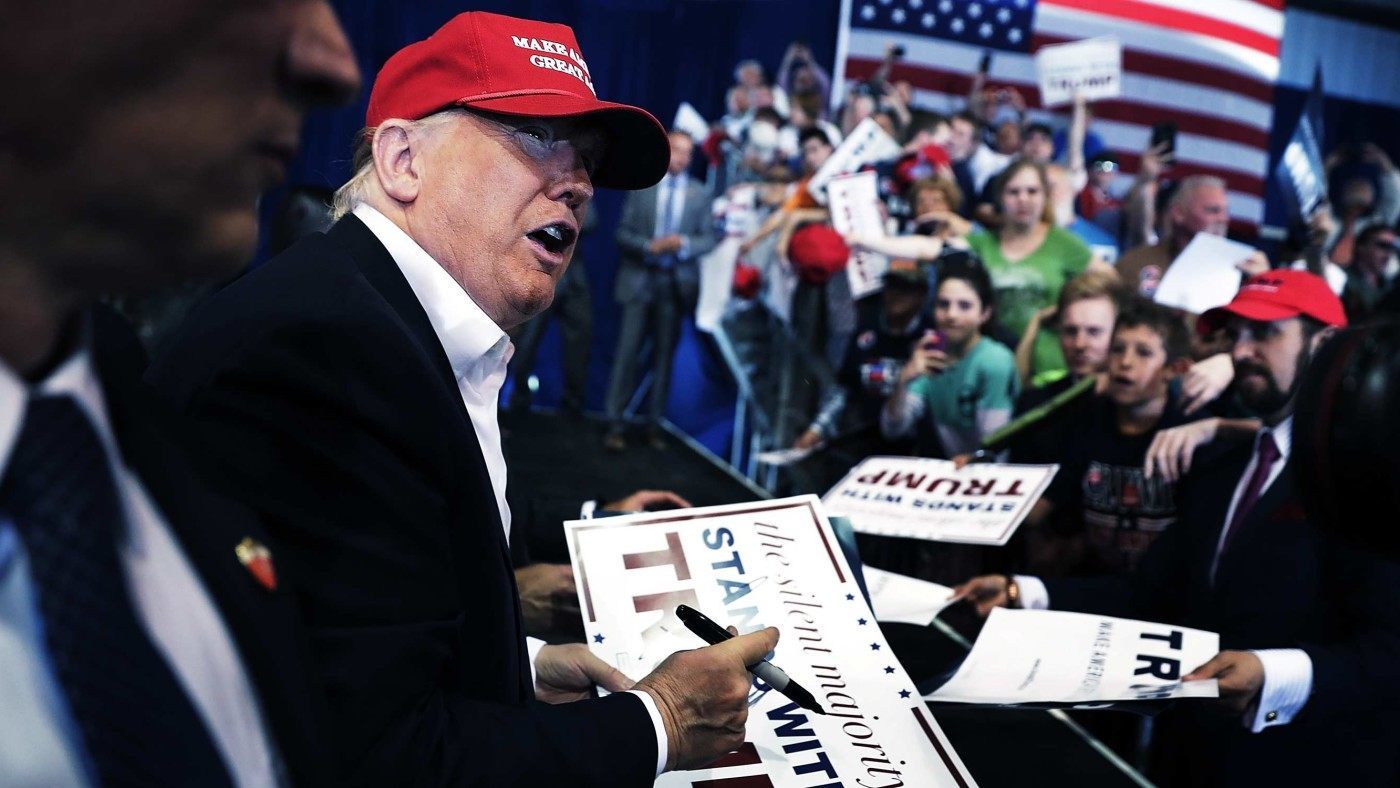Here is a question it would have seemed incredible to pose as recently as five years ago: are the liberal elites on the wrong side of history? Are they about to succumb to that favourite feature of university examination papers “a historical watershed”? Consider the accumulating evidence.
Last weekend, in the first round of the Austrian presidential election, Norbert Hofer, the candidate of the Freedom Party (FPO), led the poll with 36.4 per cent. The candidates of the governing coalition parties were in fourth and fifth place, each with a humiliating 11 per cent of the vote, and are eliminated from the second round where Hofer will face a run-off against Green candidate Alexander Van der Bellen.
The Austrian and EU establishment is now investing all its hopes in the supporters of the other candidates uniting to stop Hofer in the final round on 22 May. Since Van der Bellen’s platform is an open-doors policy for immigrants, while Hofer’s victory is attributed to the influx of 90,000 migrants into Austria in the past year, his appeal to voters may be less seductive than the establishment hopes.
This is just the latest shock for the European elites. Earlier this month the Dutch electorate, in a referendum, voted down a proposed treaty between the EU and Ukraine. That, of course, was the “wrong” result. For fear of serial embarrassment by the untutored public, the Dutch minister of the interior has already said he will “look more closely” at the referendum law. A Dutch minister with his finger in the dyke of public opinion is an accurate metaphor for the beleaguered condition of the political establishment. Geert Wilders’ PVV party is leading the polls in the Netherlands.
Marine Le Pen similarly heads the polls for next year’s presidential election in France. The insurgency is now ubiquitous. In Germany last month voters delivered a rebuff to Angela Merkel, provoked by her immigration policy, with Alternative für Deutschland (AfD) – a party that did not even exist four years ago – taking 24.4 per cent of the vote in Saxony-Anhalt and doing well everywhere else that was contested. In Poland and Hungary the victory over the discredited establishment has already been won, with the electorates voting into power, with overall majorities, governments that reject the Brussels agenda and instead reflect the national will.
In Britain, the mere fact the Leave campaign in the EU referendum seriously threatens Remain is a seismic change. The response from the threatened elites has been to unite against the perceived danger of the popular will prevailing. In the United States, the two surviving establishment (Ted Cruz now rates that label) candidates in the presidential race have formed an alliance to stop Donald Trump. How insulting is it to the voters of Oregon and New Mexico that Ted Cruz will cut campaigning for their support, while John Kasich will reciprocally snub Indiana?
Donald Trump has 950 delegates to Ted Cruz’s 560. Yesterday was another Super Tuesday, with five states voting and 172 delegates allocated. Trump carried all five states with massive majorities. The Cruz-Kasich alliance was seen by voters as an establishment provocation and they reacted accordingly. It is now mathematically impossible for Ted Cruz to acquire the 1,237 delegates necessary for nomination by democratic vote. Even if, eventually, Trump rolls into the GOP convention 20 delegates short, if backroom deals were to cheat him of the nomination, even the National Guard could not contain the resulting explosion.
Molotov-Ribbentrop pacts are now the last resort of the failing elites, from Carinthia to Cleveland, proving the accuracy of Joe Public’s assessment that establishment parties “are all the same”. The embarrassing Obama-Cameron double act was symptomatic of the fear that now grips the Entitled Ones who, for half a century, have overridden the wishes of those they governed. Finally, the engineering of massive demographic change proved to be a project too far.
There are issues here for capitalism. If the establishment crumbles, those identified with it may fall too. There has been a growing tendency for free market commentators, large corporations, billionaire philanthropists and other Davos groupies to grandstand in support of supranational authorities. Such superfluous commitment carries a health warning. Capitalists should steer clear of culture wars and focus on wealth creation. They are already discredited by association with political postures the public now rejects.
When Barack Obama coined the classic phrase “the wrong side of history”, he did not recognise the possibility he was describing the future of his own progressive ideology. Now it seems increasingly likely we have reached that totemic point of academic historiography: “a watershed of history”. The liberal/progressive dogma is fighting for its life and the prognosis does not look reassuring.


